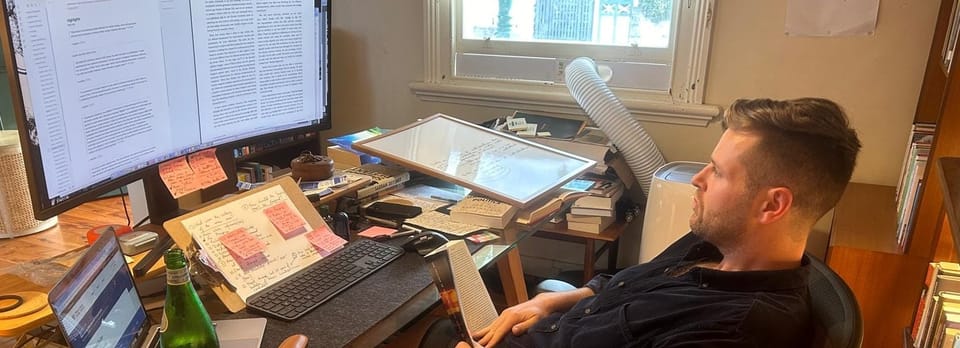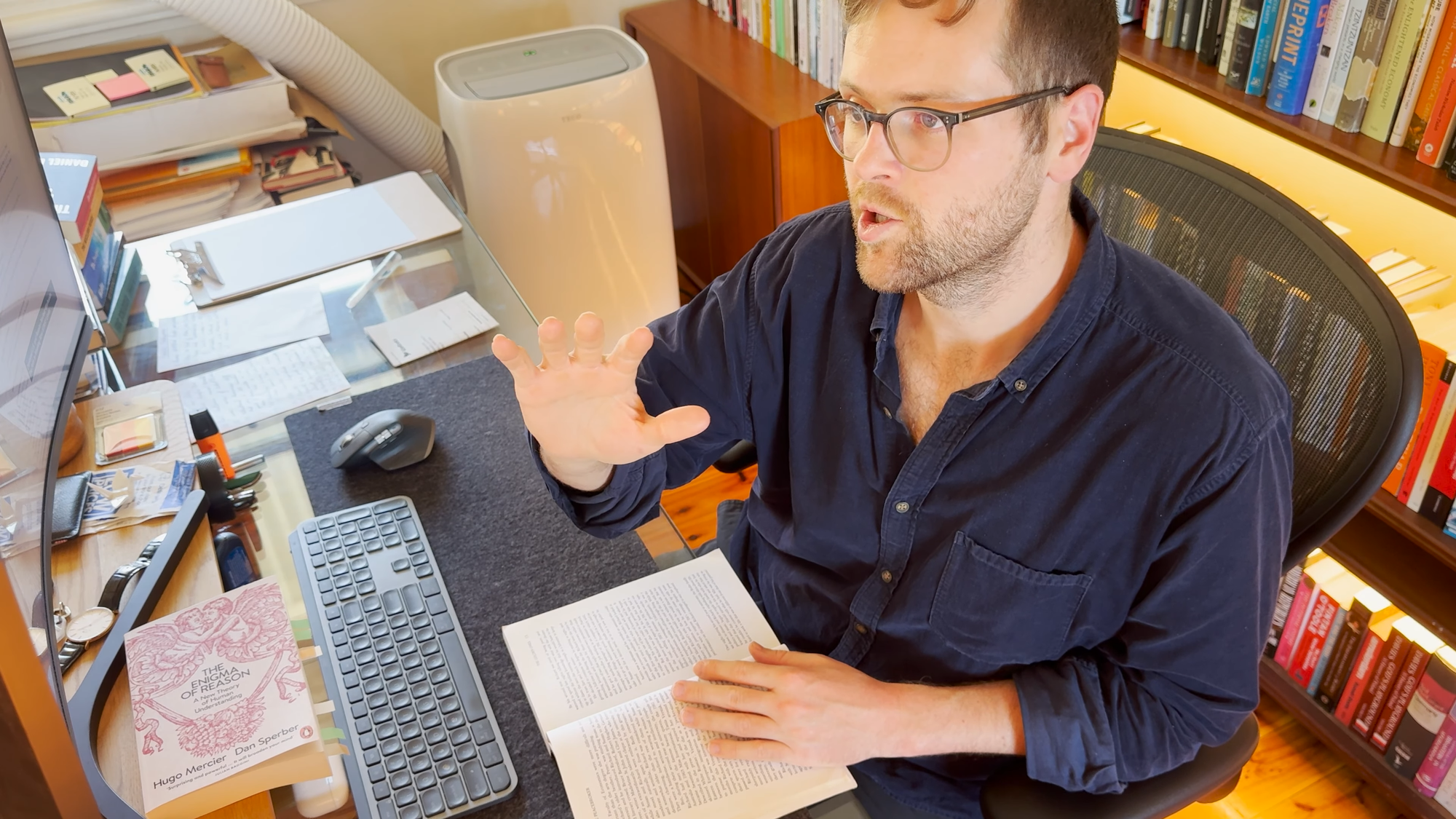Interview Research: Episode 160 (Richard Butler)

For new episodes, I'll be publishing two components:
- the interview itself, and
- a package of materials relating to my research and preparation for the episode.
If you'd like to support the podcast, you can gain access to my research and preparation materials for the Richard Butler interview and future interviews.
Some more context below.
Why do I research?
I interview deep thinkers across an array of disciplines. If I look back over my last five interviews, each covers a different field:
- International relations & diplomacy (Richard Butler)
- Macroeconomics (Larry Summers)
- Statistics & probability (Nassim Taleb)
- Evolutionary biology & anthropology (Rob Boyd & Pete Richerson)
- Urbanism & planning (Lucy Turnbull)
For each of these domains—indeed for almost all of the topics I cover on my podcast—my curiosity massively outstrips my expertise.
At the same time, I strive to ask good questions—questions that are crafted so as to maximise the likelihood of eliciting some new and important information. Such questions must be informed by deep research (otherwise one ends up putting the same basic queries as most other interviewers).
Whilst I'll never (alas) be expert in all of my guests' fields, my ambition is to at least be able to go toe-to-toe with any guest over several hours, challenge their ideas, and probe the corners of their perspective.
If these were short conversations, I might be able to hide behind a few good questions with no follow-ups. But they're not, and I can't hide. Some episodes, like with Ken Henry or Stephen Wolfram, run for more than four hours. Even a "mere" two-and-a-half-hour conversation, as with Richard Butler, generates a transcript of more than 21,000 words—the size of a novella. (The Ken Henry transcript is almost 35,000 words!)
And of course, one can't just press "play" on the recorder, lean back, and expect the guest to wax lyrical for more than four hours. One has to draw the right information out of them in a structured fashion.
That requires research.
How do I research and prepare?
Lately, I've been trying to do more than 100 hours of preparation per episode.
If you were to watch me doing research (which, as it happens, is what you'll get to do if you view my very first research-process video below), you'd mostly see a man hunched over his desk, reading books. That won't shock you.
What may surprise you is the slow systematicity with which I digest books and other sources. I'm far from a speed-reader, but mostly that's by design.
In addition, there are two "technologies" I've found especially useful for mastering the basics of new fields.
- First, working with tutors in a one-on-one setting. (On the effectiveness of this method, see Benjamin Bloom's "two-sigma" finding—this post and this review are helpful.) Apart from providing immediate feedback and moral support, working with experts and tutors also helps me identify which areas to focus on (and which to ignore) in a given field.
- And second, using spaced-repetition memory prompts. Basically, flashcards. (For more about the why and how of spaced repetition, see these two seminal essays: one by Michael Nielsen and another by former-guest-of-the-pod Andy Matuschak.) Writing and reviewing memory-prompts on a daily basis ensures I increasingly have facts, jargon and concepts at my fingertips as I build up my understanding of an unfamiliar topic or field.
Of course, binding all of this together are judgement and taste: knowing which people to talk to (for background research), which sources to focus on (and when to abandon a source), how to sequence the learning of ideas, etc. But I think even these things can, to a great extent, be learned.
Why do I think others will get value from my interview research materials?
This year, it's dawned on me that the broader project of my podcast has become learning how to learn. Most of us were never taught how to learn optimally (I wasn't). I hope that by testing, modelling and sharing learning strategies, I can provide something useful for others.
In particular, I'm optimistic that simply recording oneself working while externalising and narrating one's thought process is indeed an effective method for transmitting tacit knowledge about ways of learning.
But there's another, more-straightforward way in which people might benefit from my research materials: they can share in learning the actual stuff I learned.
I typically learn much, much more by preparing for an interview than in the interview itself. (Though of course, it would be hard to motivate myself to do all that research were it not for the interview!) This is no surprise: an interview might go for two or three hours, whereas I aim to do more than one hundred hours of preparation. But it is an excellent reason to publish my research materials; other people will probably learn a lot from them, too.
Furthermore, some people have mentioned recently that my interviews are becoming too esoteric, and have asked whether I could provide more basic context in the interview. Well, they now can learn some of the same background information that I learned, which might set them up to better appreciate the interview. (If anything, the interviews are likely to get more abstruse!)
So what's new?
I'm going to run an experiment. For most episodes going forward, I'll publish two elements: (1) the interview itself and (2) a package of materials featuring parts of my preparation and research for that episode.
The interviews will remain freely available. The research content will be paywalled as a way for supporters of the podcast to support it (and get something valuable in return).
How often I share research files, and precisely what they contain, will be subject to iteration and change. (And yes, I expect I'll develop better or more-refined learning systems as I go.) Again, this is really to gift something to people who want to support the show, rather than me selling some kind of product.
Research material will be necessarily unvarnished, incomplete and inconsistent. It will be nothing more than me documenting things I already do or publishing stuff I've already created. It might include things like:
- Research notes on books, papers or articles I've read;
- Call-recordings of sessions with private tutors;
- Screen-recordings of myself working and preparing;
- My sets of spaced-repetition memory prompts;
- Reading and research lists.
I'm enabling only one option: annual subscription. If you want to support the show, you can subscribe to get access to interview-research for a whole year. (And if you don't find it valuable beyond that, you can always choose not to renew the next year.)

Episode 160: Interview Research
For my interview with Richard Butler I'm sharing three pieces of material:
- A nearly-6-hour-long video which is a compilation of smaller videos I recorded over the course of nine days as I prepared for the interview (these include videos of me digesting a chapter of a book and me reviewing memory-prompts).
- A micro-site containing my research notes, including especially on these books:
- The Twilight of the Bombs, by Richard Rhodes
- How to Defend Australia, by Hugh White
- The Precipice, by Toby Ord
- Unfinished Business: The Negotiation of the CTBT and the End of Nuclear Testing, by Rebecca Johnson
- A set of 396 memory-prompts that I wrote and used to prepare for the interview.
You can access all of these below.
In preparing for this interview, I'm grateful to Sam Roggeveen, Rory Medcalf and Peter Varghese for conversations, as well as to others for helpful suggestions. (All mistakes are of course my own.)
If you subscribe below, you'll also receive access to future research packages, for a year (and get an email notification each time I publish a new package).